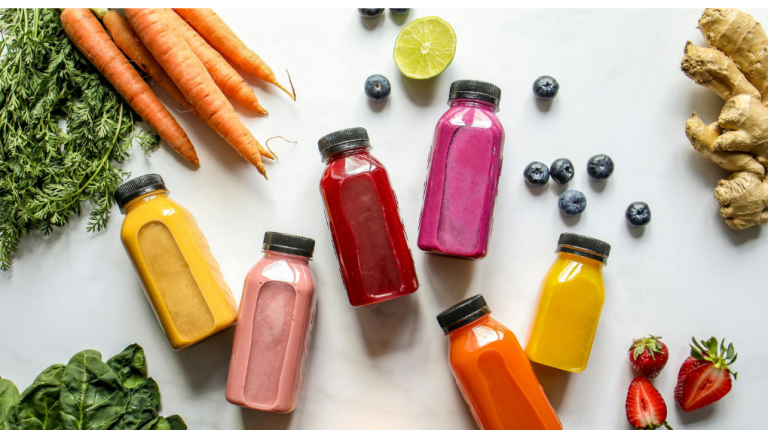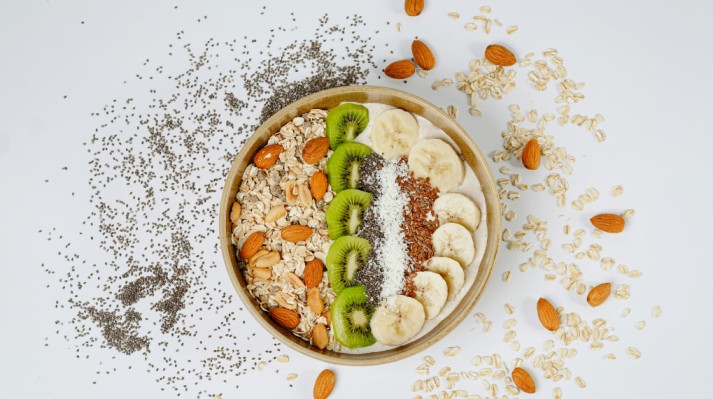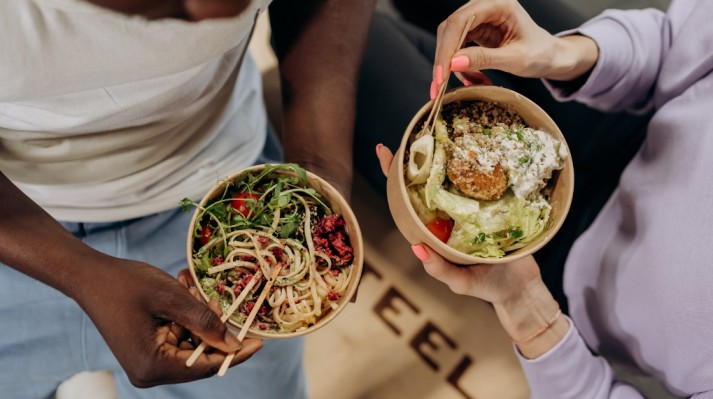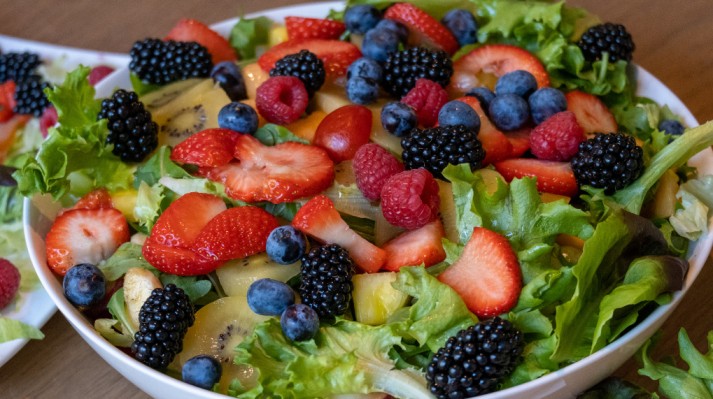Navratri is more than merely a festival – it’s a procession of spirituality, devotion, and discipline. While millions of people across India and worldwide will observe fasting during the nine holy days dedicated to Goddess Durga, fasting involves spiritual satisfaction. However, it also poses a dilemma: how do you conserve energy, stay healthy, and still meet your nutritional needs when you limit your eating habits?
This blog will take you through a nutritious Navratri fasting diet plan with evidence-backed science and traditional cultural wisdom. This blog also provides the best eating practices and foods during Navratri and what to avoid, as well as personalizing it with QUA Nutrition.
Why Nutrition Matters During Navratri Fasting
Fasting during Navratri is a little different than regular fasting. Unlike intermittent fasting, which places restrictions on meal timing only, fasting during Navratri places restrictions on the type of food you eat. Grains (like wheat and rice), lentils, and certain vegetables are usually avoided. Foods that are considered “vrat-friendly” are consumed. These foods include fruits, dairy (milk, yogurt, etc.), nuts, seeds, potatoes, and special flours such as rajgira (amaranth) and singhara (water chestnut).
If planning is not done properly, fasting any time – but especially during Navratri—on these restrictions may lead to:
- Fatigue and weakness due to a lack of complex carbohydrates.
- Nutrient insufficiencies, especially protein and fiber.
- Dehydration; often not considered because many forget to add hydration with food.
- Fluctuations in blood sugar, especially for those with diabetes.
This is why it is very important to follow a scientifically planned Navratri diet plan for 9 days to nourish your body, give you energy, and make you feel full.
The Science Behind Fasting
Fasting from a nutritional perspective has both some positive aspects and some negatives, depending on how you fast:
Positives:
- Fasting may promote detoxification, especially when fasting gives your digestive system a break.
- It could support fat metabolism when your body is using stores of fat for energy.
- Fresh fruits, nuts, and dairy contain antioxidants that help with immunity.
Negatives (if you don’t plan for it):
- Overeating fried vrat foods like sabudana vadas or pakoras can lead to acidity, weight gain, and low energy.
- Giving up on protein-rich foods or meals may lead to muscle weakness and cravings for sugar.
- Not hydrating properly may lead to headaches, fatigue, and constipation.
So, it’s time to ask yourself: How can I enjoy fasting during Navratri while ensuring that my body receives all essential nutrients?
Navratri Fast Diet Plan
Here is a balanced Navratri fast diet plan, which includes foods that provide complex carbohydrates, proteins, healthy fats, vitamins, and minerals.
Morning Ritual:
- Warm lemon water and soaked nuts: almonds, walnuts, or raisins (Helps boost metabolism and provide antioxidants).
- Coconut water or buttermilk: Good for hydration and electrolytes.
Breakfast:
- Sabudana khichdi with peanuts: Provides carbohydrates for energy; peanuts provide protein.
- Amaranth (rajgira) porridge: High in protein, calcium, and iron.
- Fruit bowl with chia seeds: Provides fiber and antioxidants for stomach health.
Mid-Morning Snack:
- Roasted makhana: Crunchy, protein-packed, low-calorie snack.
- Banana with peanut butter: Good mix of carbohydrates and protein.
- Apple + handful of walnuts: Helps with satiation and is good for brain health.
Lunch:
-
- Kuttu (buckwheat) or singhara rotis with curd.
- Potato or pumpkin curry made in moderate oil.
- Cucumber raita with mint, for cooling.
- Salad made from cucumber, tomato, pomegranate, and a pinch of rock salt.
Evening snacks:
- Green tea or herbal tea, with roasted nuts.
- Paneer cubes sautéed with sendha namak and pepper.
- Fruits chaat sprinkled with rock salt and lime.
Dinner:
- Samak rice pulao (with vegetables such as bottle gourd, carrot, or beans).
- Lauki (bottle gourd) soup or tomato soup.
- Sweet potato tikki roasted (instead of fried).
Bedtime
- A glass of warm milk with nutmeg or turmeric.
(Helps improve sleep quality and supports muscle recovery)
Foods to Include in Navratri Diet
While planning your Navratri fast diet plan, these are the foods that you should include in your diet for a healthy fast.
- Complex carbohydrates: Samak rice, kuttu, rajgira, singhara.
- Protein sources: Paneer, curd, milk, nuts and seeds, and amaranth.
- Healthy fats: Ghee (in moderation), coconut, flaxseeds, and walnuts.
- Hydration: Coconut water, lemon water, buttermilk, and plain water.
- Micronutrient boosters: Fruits (banana, apple, papaya, pomegranate) and vegetables (lauki, pumpkin, cucumber).
Foods to Avoid During Navratri Fasting
To stay healthy during the Navratri fasting, you should understand which foods you should avoid.
- Fried snacks such as puris and pakoras.
- Excess sugar or sweetened foods from refined sources.
- Excess potatoes (they can create a sudden blood sugar increase).
- Soda and packaged drinks.
- Skipping meals (it causes you to eat more later in the day).
Tips for a Healthy and Energetic Navratri Fast
To make the most of your Navratri fast, here are some easy tips to help you stay healthy, active, and spiritually focused
- Focus on protein: Incorporate paneer, nuts, and amaranth to reduce muscle loss.
- Stay hydrated: Drink 8–10 glasses of water a day.
- Cook light: Steam, roast, or sauté instead of deep-frying.
- Be wary of portion sizes: Eat smaller meals every 3–4 hours.
- Don’t skip the fruit: It provides quick energy and antioxidant value.
- Eat mindfully: Select sattvic foods that nourish both body and mind.
How QUA Nutrition Can Help You During Navratri
Each person’s experience with fasting is different. Some may want to lose weight, while others want to preserve muscle mass. If you’re an athlete, you may be gaining energy for training during Navratri. That’s why QUA Nutrition offers individualized diet plans.
At QUA Nutrition, our dietitians will:
- Assess your health status, goals, and lifestyle.
- Write an individualized Navratri diet plan for 9 days tailored to ensure an appropriate mix of nutrients.
- Give specific guidance on portion sizes, food timing, and fluids to ward off fatigue.
- Manage specific medical conditions like diabetes, thyroid, or PCOS.
With evidence-based meal plans and individualized coaching, QUA Nutrition ensures your fast is spiritual but healthy, energizing, and fruitful.
Stay Healthy During Navratri With Experts Guidance
Navratri marks a period of worship, positivity, and purification of body and mind. By adhering to a healthy, nutritious Navratri fasting diet plan, you can stay energized and health-driven and enjoy the real benefits of fasting. Avoid processed and fried foods, drink plenty of liquids, and choose conscious food options like amaranth, buckwheat, paneer, nuts, and fresh fruits.
If you are looking to elevate your fasting nutrition even more, QUA Nutrition can craft a plan just for you—whether your objectives are weight management, fitness, or just wanting to stay more active during the festival. This Navratri, let your fasting be a celebration of health in addition to devotion. Contact us now!
FAQs
- Am I able to reduce weight while I am fasting for Navratri?
Definitely, if you stick to eating light, nutrient-dense foods that do not contain fried snacks, you can lose weight. However, if you eat a large amount of high-calorie vrat foods such as fried sabudana, you can gain weight.
- Which flour for rotis would be good for fasting during Navratri?
Kuttu (buckwheat), rajgira (amaranth), and singhara (water chestnut) flours are great options because they are gluten-free, protein-rich, and a vegetable-based energy source.
- How do I ensure I can fast with diabetes?
If you have diabetes, it’s best to stick to low GI foods, such as samak rice, paneer, nuts, and vegetables. You may want to limit the amount of potatoes and fried foods that you eat. You may want to see a nutritionist to get personal feedback, too.
- Can I exercise during Navratri?
Definitely yes! Just keep it light to moderate. Stick to yoga, walking, or stretching. If you’re an athlete, you can see a nutritionist to get a feel for how much to eat.
- How can QUA Nutrition help me during fasting?
QUA Nutrition will work with you to develop a diet plan that is catered specifically to you, your goals for fasting, medical history, and lifestyle habits. You will feel energetic, you will not have any deficiencies, and you will be able to fast for the rest of the week without causing you any health concerns.










